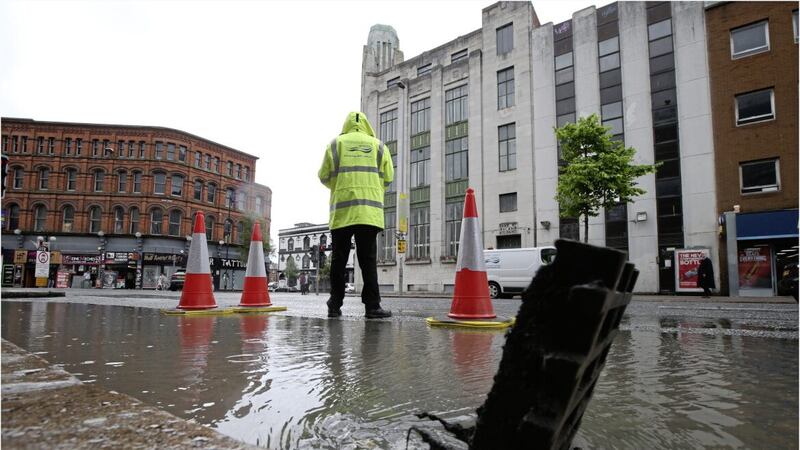Almost half of Conservative voters now support electricity nationalisation, with only a quarter opposed and the remainder unsure, according to a YouGov poll for Monday’s Times.
Such an extraordinary change in attitudes is bound to impact politics on this side of the Irish Sea. The rumblings of a debate can be discerned already. Michelle O’Neill has been complaining for months about “big energy corporations who are making huge profits”. After SSE announced gas and electricity price rises last week, the Sinn Féin vice-president tweeted “it is scandalous that CEOs and shareholders are getting richer, while families struggle”.
There is plenty to criticise about the contrived, complicated way the electricity industry has been privatised in Northern Ireland and the UK overall. The suppliers named on domestic bills are effectively retailers and have their profit margins capped by the Utility Regulator at around 2 per cent. Owners of power stations and other generating facilities make much higher margins, up to 30 per cent in many cases. The electricity grid is also privately operated and maintained. If all these profits were squeezed out of the system it would take about a tenth off domestic bills in a normal year. However, that is a drop in the bucket compared to the coming winter crisis, which is caused by global prices of oil and gas. Although profits in this sector are enormous there is not much any country or even the whole of Europe can do about it, let alone a devolved region.
Fully renationalising electricity in Northern Ireland would mean Stormont spending billions to buy back the retailers, generators and grid and unite them in one public utility, as existed until 1993. But it would still not produce any oil or gas - or coal, still powering Kilroot, and also bought from Russia.
After renationalisation, all investment would be on Stormont’s books with almost no ability to borrow for it. This would create a similar situation to Northern Ireland Water, where underinvestment is damaging the entire economy by placing limits on new housing and industry.
Investment is meant to be the real advantage of privatisation. While there is little competition in a natural monopoly like electricity, private firms can at least access private finance. Add in regulation and environmental subsidies and firms will borrow, sell shares or find partners to develop the new infrastructure and energy sources necessary to keep prices down in the long term.
Privatisation has not been unsuccessful in Northern Ireland and there is nothing intrinsically wrong with shareholders and profit - they pay your pension, if you have one. But it is undoubtedly an expensive and elaborate way of getting something as basic as investment into a small regional system.
There is a third way that promises the benefits of privatisation without the costs. Mutual companies, the model once followed by the UK’s building societies, are private businesses with no shareholders. Any profits are re-invested or returned to customers. Northern Ireland has a relevant and successful example: Mutual Energy Ltd owns and operates the electricity and gas inter-connectors to Scotland, plus the gas pipelines in greater Belfast and to western counties. During the pandemic, it used its surpluses to cut electricity prices for domestic customers.
Mutual Energy traces its origins back to 2003, when mutualisation was encouraged by the Utility Regulator. Start-up funding came from issuing bonds, a cheap way to raise money. There were high hopes this was how privatisation would play out in Northern Ireland but it was not to be - better-resourced investors snapped up our juicy assets. Nevertheless, the lack of awareness about Mutual Energy is perplexing. We have an equally unfortunate blind spot to Welsh Water, which became a mutual company in 2001 after its privatised operator went bust.
Although Welsh Water is considered a great success, its example was studiously ignored by the Northern Ireland Office throughout the sneaky attempt at water privatisation during the five years of direct rule up to 2007, despite sharing a secretary of state with Wales - Peter Hain - for much of that time. Stormont has since ignored it because the Welsh model would be difficult to adopt without domestic water charging, although perhaps not impossible. UUP leader Doug Beattie has recently said he is in favour of mutualising Northern Ireland Water.
We are about to plunge into unprecedented scrutiny on the cost and condition of our infrastructure. This should direct some deserved attention to an answer that has been sitting in front of us for 20 years.









